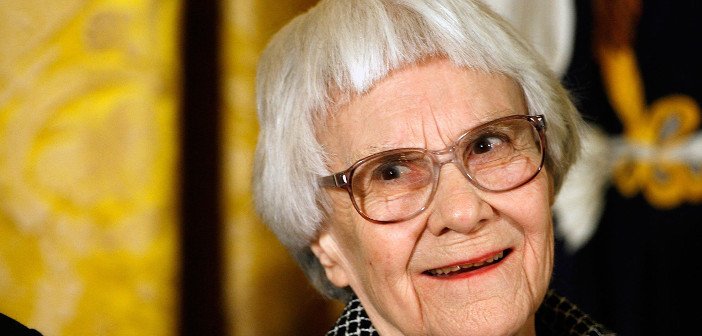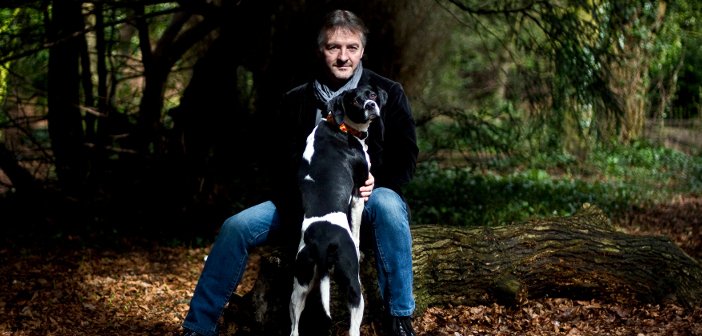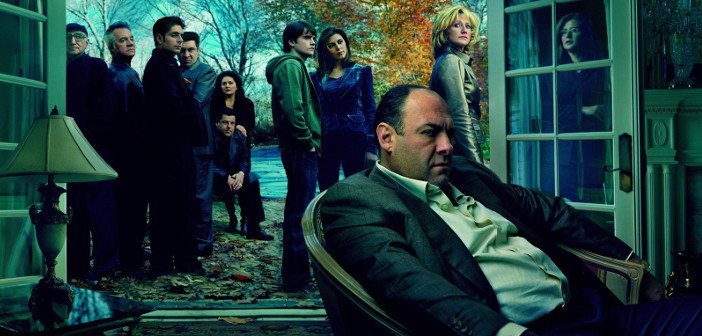In Conversation | John Connolly on the Charlie Parker series, gender-based violence, the return of Harper Lee and more
Over the course of 16 years, John Connolly has infused his Charlie Parker books with gothic charm and supernatural happenings while still managing to retain the integrity and expected formula associated with crime fiction.
He’s been prolific throughout these years, rarely allowing for too much time to pass in between new adventures for the now battle-weary and worn Parker who faces off against some very real and very vicious demons in A Song of Shadows, the 13th entry in the series. Connolly’s private detective has been through a lot, his creator not one to instil too much comfort where his leading man is concerned. He’s fond of his character, naturally enough, but accepts that a conclusion likely isn’t too far off despite the temptation to keep Parker busy for years to come.
Here, in the second of a two-part interview, Connolly gives his thoughts on gender violence in genre fiction, the impending return of Harper Lee, the end game of the Parker series and a great deal more below…
When we spoke about music, you mentioned that your book shelves are dominated by male writers. Gender-based violence is something that pops up regularly in genre fiction and though Every Dead Thing dealt with that aspect, it isn’t a regular fixture across the Parker series. There’s quite a backlash to seeing that kind of violence in culture, and there are high profile examples like The Girl with the Dragon Tattoo. Onscreen, Helen Mirren has criticised British television for a rising female body count. It feels like we’re in an age where people really don’t want to see it anymore.
John Connolly: You get a different emotional response from the reader to the death of a woman than from the death of a man, simply because at some level we have an intrinsic acceptance that young men die frequently at the hands of other young men. There’s a sliding scale, an ascending scale, rather; Men – Women – Puppies – Cats. You can kill a woman in your book but don’t kill a cat. Now, at that point, our moral compass has become very askew. Don’t kill a puppy but you can eviscerate a small girl. It is to do with that emotional response and it’s a very easy thing for writers and filmmakers to use because you know you’re going to get a reaction from the reader. It’s a very cheap thing to do and it does leave you open to accusations of misogyny. I think male mystery writers are much more aware of that now, more than they were 10, 20, 30 years ago. Much of the most graphic violence inflicted on women is inflicted by other female writers, who perhaps feel that that accusation of misogyny can’t be levelled at them.
Well, Gillian Flynn got labelled a misogynist for Gone Girl.
That’s a black comedy about marriage. I liked the film more than the book. I thought it was very understated on David Fincher’s part. I have female writers who are friends, whose books I can’t read. I just feel that they are trying to shock the reader in a way that a male writer would step away from and say, ‘I’m not going to do that’. It’s not a thin line, it’s a blurred line and we all overstep it, but there is a reluctance on the part of writers to say, ‘Actually, readers are kind of inured’. They’ve seen beheadings, they’ve seen everything else. What do we do to shock a reader out of that sense of complacency when they read a crime fiction book? My thing was to step away from it entirely and go, ‘I have no interest in doing that anymore’. I did it in my first book. Maybe I shouldn’t have?
You said before that you regret employing that level of violence.
You’ll always regret the things you did when you were younger. It could have been done more subtle, even just the excision of a line here and there. Readers are smart. You can do much more by implication. It’s much harder, but when you do it; it works better. You live and learn.
What’s your head space like when you finish a new book?
Sometimes you’re just glad you got it finished, you’re glad you’ve got something from what was a really tiny germ of an idea and suddenly a year and a half later it’s 100 thousand words and you’re just happy you got to that stage. I think I told you before, every book I write I kinda want to throw it away about 20 or 30 thousand words into it. You don’t know whether you’re losing faith because… you lose faith because it’s part of the process. Doubt is part of the process. It may be at some point that you’re right, but you don’t know. The feeling is going to be exactly the same every time.
I feel like wanting to throw the book away after x amount of words is a better quote than, I think it was David Mitchell, saying; ‘Every book is a chapter of my life’.
No, no, every book is a year I’m not going to get back again! That’s what it is. I could have been walking the dogs! But no, that’s just shocking…
It’s literary pretension.
Maybe some people just have different views? I think maybe because I came up through journalism… journalism is very practical. It knocks the edges off you. And it’s that distinction between art and craft. There are writers, Martin Amis being one of them, who just don’t believe that you should use the word ‘craft’. It’s art or it’s nothing. But A), I’m not sure you get to decide that your work is art and B) art comes out of craft. Leonardo da Vinci’s office floor was probably covered in helicopters that didn’t fly, paper aeroplanes that were just a bit off! Out of all of that, all of the fiddling and the things that go wrong… the idea that as soon as it’s on the page it’s stuck prose… you hack it out and hopefully when it comes out, it has some kind of merit to it.
In terms of ruthlessness, how are you at this point with setting your own deadlines?
A book is never done. Someone once said that you don’t finish books, you abandon them at some point. You raise a very interesting question. You can take as long as you want to take on a book if you don’t set yourself a deadline.
You’re quite prolific, though.
Well, I am, but for particular reasons at the moment, which we’ll come back to. I look at somebody like Donna Tartt. Donna Tartt writes The Secret History – a very good first novel and certainly a book that works if you’re a teenager or in your early twenties. I’m not sure it does after that, a bit like reading The Catcher in the Rye when you’re not 16; it’s toss! But for that period when you’re a teenager, it’s genius! Then you get over it. Holden Caulfield… there’s nothing wrong with him that a good spell in the army couldn’t cure, you know? I once said the same of Olaf Tyaransen, in print, and his dad said; ‘He’s absolutely right, Olaf!’. So, Donna Tartt writes The Secret History, then takes 10 years to write The Little Friend, her second novel. It’s a worse novel and there isn’t 10 years worth of progress. You learn from finishing things. I’m not sure that you get 10 years of progress simply from spending 10 years on one book. That’s part of it, that I actually like finishing projects and asking, what did I learn from that? Am I a little bit better? Can I then apply this to the next one? Everything is progress.
And I’m working hard because I know that there’s a very narrow window for a writer, and for a musician – it applies right across the creative arts – where you have a readership, energy, ideas and somebody who is willing to put your stuff out there, and at any point down the line, at least one of those things will not be true. You have that window where all of your stars are aligning and then you work really, really hard during that period of time. That will make up for the few years down the line where you either get ill, or your readership falls off for whatever reason, or the industry, which has been going through this seismic changes over the last few years… we’re still not sure what model is going to come out of it. The model that will emerge, whatever it is, writers are going to be hurt by it, in the same way that a lot of musicians were hurt by the changes in their industry. Writers, unfortunately, can’t sell t-shirts at gigs, though. We can’t charge 20 quid at The Olympia! We don’t get to do that. We’re all going to be worse off.
That idea of going away for a while and working on one thing… are you nervous about Harper Lee coming back?
Yeah. I think there’s a whole lot of smoke around it, which is worrying. Also, if you know the history of To Kill a Mockingbird, which came more or less from a series of unconnected short stories and was hammered out through a pretty lengthy process over years and then she went through an editorial process that I think lasted for around three years… so if this is juvenilia, which it is, it’s very young juvenilia. Very few of those books that have emerged, the Nabokov book that was published that he didn’t want published, for example, very few of them add to the person’s legacy. What was great about Harper Lee, it was finite. It was perfectly-formed. There was nothing to besmirch it beyond what she had done. I think [coming back] can only damage her legacy as a writer. It strikes me, despite what people are saying… she’s very old and unless there’s been some kind of miraculous improvement, she probably doesn’t have all of her marbles…
It seemed to be a popular belief that she had already passed on…
Yeah! She didn’t enjoy the process that went with publishing. It wasn’t that she didn’t have ideas. She had written the book that she had wanted to write and then she hated all of the stuff that went with it. Why then, at the end of your life, would you suddenly want to draw all of that down upon yourself and have people coming to your town to try and take photos of where you lived and give up that little bit of peace you have left? None of it rings true to me.

Do you think it’s not her doing?
I would be very surprised if it was her doing. She might have consented to it but… how? She’s a very old woman.
Maybe she signed a contract for two books and it’s finally time to collect. Look at Thomas Harris. He didn’t want to do Hannibal Rising.
Well he wrote it as a script. He doesn’t like writing. That book is essentially a novelisation. He only writes when he actually needs the money. He doesn’t really want to do it.
My understanding was that he didn’t want to do Hannibal Rising in any form, but they basically said, ‘We have the rights and we’ll get anyone to do it’, so he caved.
A friend of mine shared an agent with him and got to see the Hannibal Rising script that Harris had written and it was essentially what went into the book. I think he’s a man who lives life and enjoys himself and every now and then he has to pay the bills. He doesn’t have to do it anymore, though. I remember reading an interview with Elmore Leonard before he died about Justified and he said that every time that show is on, he got sent a cheque for $75,000!
It’s a great show. Are you a fan?
I’ve only seen one or two episodes. My father-in-law really likes it. Thomas Harris must be getting serious residuals from the Hannibal show, though, so he’s not going to write another book. Why would he bother?
There are rumours that he might be, though…
Well he’s taking a long time! Hannibal Rising was shocking. Hannibal, I can defend. You know, the ending didn’t bother me. I thought it made sense. It’s a lover’s pursuit. The thing you need is also the thing you love. I thought it was okay, and I’m glad he’s in the world.
The TV show is legitimately excellent.
I’m looking forward to seeing it. I’m way behind on my TV. I’ve only recently finished Breaking Bad.
How’d you find the ending? I wasn’t crazy on it.
No, me neither. I don’t think it’s The Greatest Thing I’ve Seen On Television. It is very good, though. Above all of them, I’ll still take The Sopranos. And Twin Peaks, the first one-and-a-half seasons of it anyway. And I’ll take The Sopranos above The Wire, too, and I know David [Simon] well, but I’ll still take The Sopranos.
I don’t know what it is about The Sopranos. I’m that one guy. I just don’t get it.
People fought wars so that you could have the wrong opinion. They fought and died on battlefields so that you could be wrong. So you use that right! Don’t let them die in vain.
You’ve never lost an audience like I did when I slagged off The Sopranos during a live festival interview.
Be careful what you criticise…
With the Parker series, it feels like we’re in the end game now. Authors often say that it’s tough to let go, that their character is a part of them… is that the case here?
Most writers don’t outlive their characters. Writers die and characters live on. The opposite is rare; Colin Dexter killing Inspector Morse for example. Arthur Conan Doyle trying to kill Sherlock Holmes and then subsequently finding that he can’t kill him, that he comes back again. It’s important that if there is an end game, and whether it’s an ending in which people die or not, is that it’s appropriate. Readers only get annoyed if it feels cynical or if it feels like you have betrayed their investment in and connection with the character. If you’re going to end it, you better end it right. I have an ending in mind, and I have had it for a very long time, but I enjoy writing the books. I really do. It’s a way of looking at the world and a way of paying my mortgage – Shakespeare wrote for money, let’s not beat around the bush here! – but as Parker has gotten older, and I made the decision to let him grow older, and as I have gotten older, the engagement with the books and the character of the world has changed, because I’m not the person who wrote the first book.
He was 26 years old and he thought he was the bee’s knees and I had all these ideas of what the book should be and what the character should be and I didn’t really know about the world at all. Years later, I’ve buried people and I kind of have a better understanding. The books are better. Some people might think otherwise, and I accept that. Sometimes it’s a bit like music; the book that you come to a character with is often the book that you love. It doesn’t matter if it’s not the best one, it’s your introduction to this world and you’ll always have a huge affection for it. The last thing I want, if there is an ending, is that people would be let down after spending all this time with it. Hey, let’s go back to The Sopranos. Some people thought that ending was apt and made sense but others wanted a resolution. I liked it. I don’t mind ambiguity. I can live with it.
A Song of Shadows is out now on Hodder & Stoughton. For more, visit John’s official website



